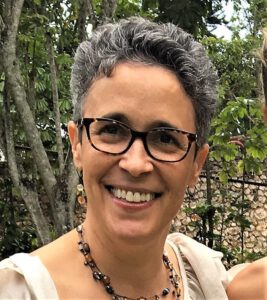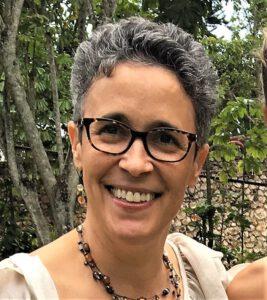Myriam Raber, a dentist in northeastern Ohio, is often mistaken for what she is not.
“I let people label me sometimes,” Myriam said. “I go the hospital, and they look at my husband or my kids and then me and, without asking, they check ‘white.’”
An immigrant from Haiti, Myriam often butts up against the labels used in the US.
“I don’t feel like I have to fit in any one box,” Myriam said. “I think there are more and more people like me, and there will be even more people like me in the future.”

Your Ancestry and Your Health
But Myriam also knows that there is a difference between how you culturally identify and what your genetics might say, and that difference could impact your health.
“I know what I am culturally — I’m Haitian,” Myriam said. “But genetically, I’m just a mix; I’m a Caribbean mix.”
While she isn’t bothered by being mistaken for being white, or Hispanic, or Jewish, she understands that, at least in medicine, it’s essential to know a person’s ethnicity. A person’s ethnicity plays a role in their risk for certain conditions or how they respond to certain medications.
Knowing about these differences is also the reason why she is participating in 23andMe’s research. Improving the diversity of research participants will help scientists learn new insights into conditions that affect people with African ancestry or mixed African and European ancestry, like Myriam.
“Obviously, I’m in healthcare, and I believe the future of healthcare is in DNA,” she said.
COVID-19’s Uneven Impact
Everybody responds a little differently to medicines or illness. Myriam believes that a person’s genetics — along with things like their diet and exercise — holds the key for researchers trying to better understand those differences.
The impact of COVID-19 offers perhaps the most vivid example of that, Myriam said. African Americans and Latinos are more likely to be hospitalized or die from the virus when compared to white patients. Poverty and access to adequate healthcare may explain some of it, but not all.
“I believe it’s probably in the DNA, and that’s the same for cancer or anything really,” Myriam said.
People Like Me
In dentistry, she has seen issues created by the lack of research among people of non-European ancestry. For example, during a lecture on tooth development when she was in dental school, the instructor told a class about when different teeth came into the mouth.
“Well, I knew that for a Haitian child, that tooth often comes in a whole two to four years earlier,” Myriam said. “This (data from the instructor) was more relevant for a white child from the midwest than a black child in Haiti. This has had serious consequences for many. I know it affected how Haitian children were being classified and processed by the United States immigration services.”
There were other examples, whether the timing for puberty or some medications were more or less effective depending on a person’s ethnicity. Myriam knew that the science was often incomplete for those with African ancestry, for instance, because those populations weren’t included in the research.
“So basically, there were no good studies for people like me,” she said.
Participating in Research
In 2018 researchers found that about 78 percent of genome-wide association studies were done in European populations alone. That means that these studies’ findings are often not as relevant for people of African or Asian or Latino or Indigenous ancestry. Leaving those populations out of research also impedes a fuller understanding of the genetic architecture of disease.
For Myriam, it just makes sense to improve the diversity of research participants.
“As a mixed-race healthcare professional, I believe that medicine will rely heavily on genetics for custom-made preventive and curative programs,” she said. “Traditional research used to lump people into racial groups with minorities being underrepresented.”
For Myriam, changing that by participating in research may open up genetic discoveries that have the potential to benefit everyone and perhaps instill the same sense of wonder at the uncovered insights.




